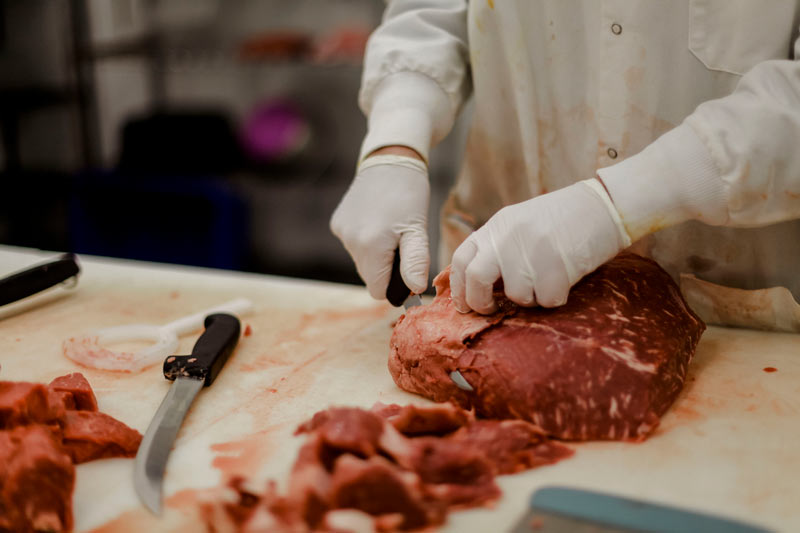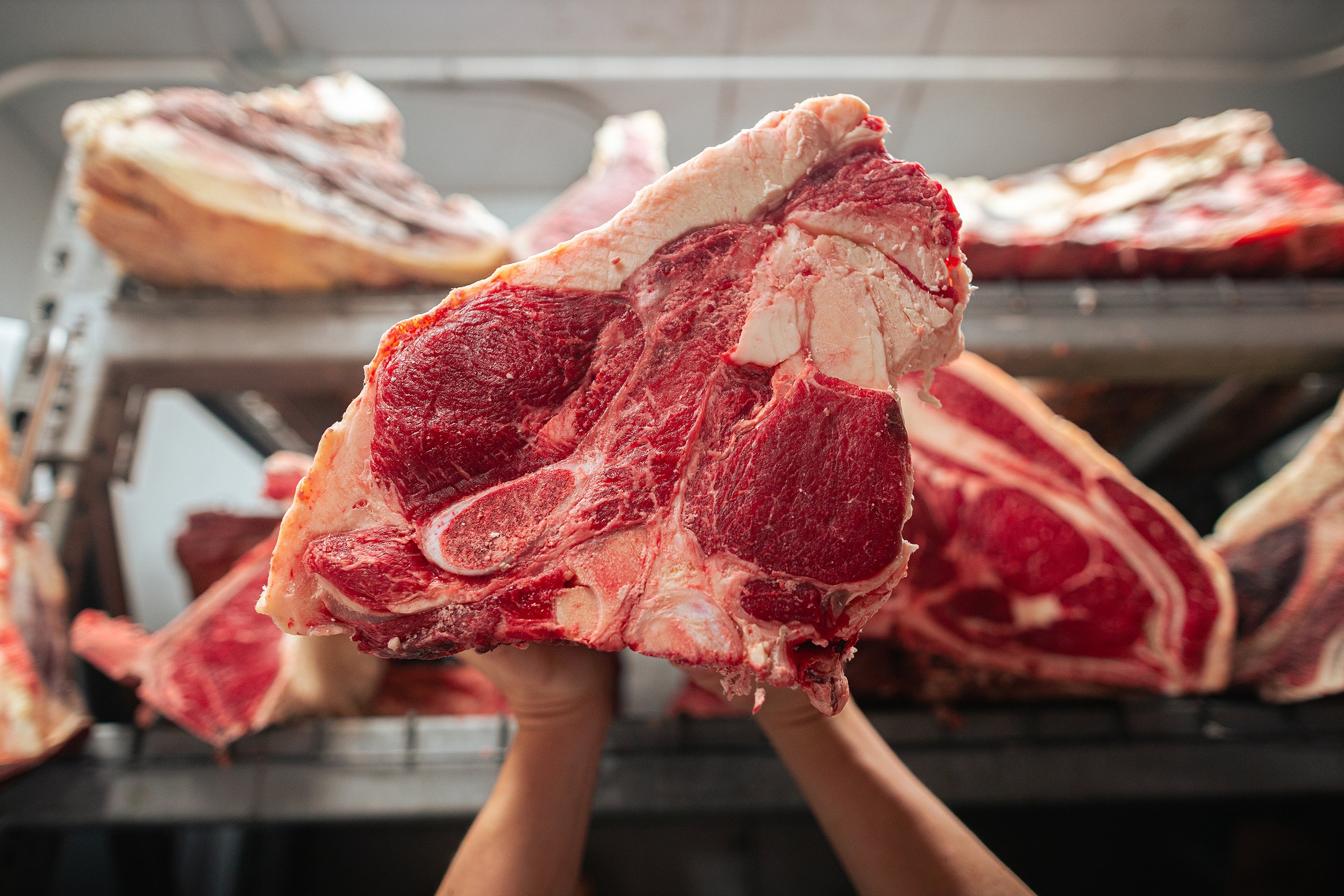All About Meat Markets: Recognizing Their Function in Sustaining Local Farmers
Meat markets offer a vital feature in neighborhood economic climates by linking the gap in between farmers and customers. They provide a direct sales channel that boosts the quality and top quality of meat products. Past ease, these markets play a significant function in advertising sustainable agriculture and supporting the resources of neighborhood farmers. Nonetheless, the implications of this connection expand additionally than one might anticipate, elevating questions concerning sourcing techniques and customer choices.
The Relevance of Meat Markets in Neighborhood Economic Climates
Commonly ignored, meat markets play an essential role in strengthening regional economic climates by supporting farmers and creating work. These facilities work as vital middlemans, giving a platform for neighborhood producers to sell their items directly to consumers. By buying locally sourced meat, customers add to the sustainability of neighboring farms, ensuring their viability and advertising agricultural variety.
Moreover, meat markets create job opportunity, ranging from sales and butchers team to management and logistics roles. This job production boosts the regional economy, cultivating a feeling of area as citizens engage with their area companies.
In addition, meat markets usually draw in clients that look for premium, fresh items, which can lead to boosted foot traffic and sales for bordering companies. Generally, the visibility of meat markets can substantially enhance local economic health and wellness, strengthening links in between farming and community wellness while sustaining the livelihoods of farmers.

Linking Farmers and Consumers: How Meat Markets Operate
Meat markets work as vital centers that connect regional farmers directly with customers, promoting a streamlined supply chain that benefits both events. By sourcing items from neighboring farms, these markets guarantee that consumers obtain fresh, high-quality meat while sustaining neighborhood agriculture. The procedure of meat markets includes developing partnerships with farmers, commonly enabling them to showcase their items and share their farming methods.
Subsequently, consumers access to a diverse selection of meats that reflect regional tastes and choices. Transparency is an essential aspect of these markets, as consumers are commonly given with information regarding the sourcing and managing of the meat. This straight link cultivates depend on and commitment between customers and farmers, boosting neighborhood connections. In addition, meat markets regularly take part in advertising activities, such as farm-to-table occasions, which further improve the customer's experience and recognition of regional farming techniques.
Promoting Lasting Agriculture Practices
Promoting lasting agriculture techniques is important for the future of food manufacturing and environmental health and wellness. By concentrating on moral farming strategies, motivating biodiversity, and promoting for seasonal and neighborhood sourcing, the agricultural field can considerably reduce its ecological impact. These methods not only support the ecosystem yet also cultivate a much healthier partnership in between farmers and customers.

Honest Farming Strategies
A growing variety of farmers are taking on ethical farming methods to improve sustainability and minimize ecological effect. These approaches concentrate on responsible land monitoring, minimizing using chemical fertilizers and pesticides, and embracing natural methods. Methods such as plant turning, cover chopping, and agroforestry not only improve dirt health and wellness yet also advertise biodiversity. Furthermore, farmers are increasingly prioritizing pet well-being by providing pasture-based systems and minimizing confinement practices. By prioritizing local resources and community involvement, ethical farming fosters a resistant agricultural system. This shift not just profits the environment however additionally enhances the link in between customers and farmers, motivating notified investing in decisions that support lasting techniques. Eventually, these strategies offer to develop an extra sustainable future for agriculture.

Biodiversity and Environment Health
While numerous farming practices have actually historically prioritized return over ecological balance, a growing recognition of biodiversity's importance has arised among farmers and customers alike. Biodiversity boosts environment strength, sustaining dirt health and wellness, bug control, and pollination. By integrating varied crops and livestock, farmers can develop extra stable ecological communities that lower dependence on chemical inputs and improve overall performance. Sustainable farming practices that advertise biodiversity not just secure all-natural habitats but also add to the long-term practicality of farming. Meat markets play an important function in this standard shift by advocating for neighborhood items that prioritize eco-friendly wellness. By selecting to source from ranches that accept biodiversity, customers can sustain practices that ensure a lasting future for agriculture and the setting.
Seasonal and Local Sourcing
Neighborhood and seasonal sourcing not only enhances the freshness of food yet likewise sustains sustainable agriculture methods that benefit both customers and farmers. By prioritizing local meat markets, consumers can link straight with farmers, cultivating a feeling of community and count on. This version minimizes the carbon footprint connected with long-distance transportation, advertising ecological sustainability. Farmers take advantage of even more secure revenues and a dependable market for their products, which encourages accountable farming techniques. In addition, seasonal sourcing encourages diverse farming practices, enabling farmers to rotate plants and animals, thereby keeping dirt wellness and biodiversity. Overall, this strategy creates a much more resistant food system that straightens with the worths of area, sustainability, and top quality support, strengthening the essential link between consumers and neighborhood agricultural systems.
The Function of Transparency in Sourcing Meat
What factors add to customer rely on meat items? Transparency in sourcing is an essential aspect. Consumers significantly inquire about where their meat originates from, consisting of the techniques and farms entailed in elevating the animals. Meat markets that focus on openness typically display clear labeling, detailing the source and production approaches used. This visibility promotes self-confidence and permits consumers to make enlightened selections.
Additionally, clear methods can consist of farm brows through, partnerships with neighborhood farmers, and sharing stories concerning the pets and their atmospheres. As consumers come to be more informed regarding food sourcing, they often tend to favor meat products from suppliers who loom with information. This need for transparency not only strengthens consumer count on yet also encourages meat markets to establish moral partnerships with local farmers. Ultimately, openness sustains a cycle of responsibility, profiting both consumers and producers in the meat sector.
Supporting Pet Well-being Via Citizen Sourcing
Supporting animal welfare through local sourcing rest on the fostering of moral farming practices. By focusing on openness in sourcing, customers can make enlightened options that reflect their worths. Additionally, area involvement campaigns cultivate a stronger link in between farmers and customers, enhancing the general dedication to gentle therapy of pets.
Moral Farming Practices
While consumers progressively focus on ethical factors to consider in their food selections, local sourcing supplies a sensible course to supporting animal well-being. Honest great post to read farming practices highlight humane therapy of pets, guaranteeing they have adequate area, appropriate nourishment, and access to outside atmospheres. Local ranches usually abide by these standards, as they are much more answerable to their clients and neighborhoods. By selecting to resource meat locally, consumers can sustain farms that prioritize gentle and lasting practices over industrialized techniques, which frequently compromise pet wellness. This link cultivates a deeper understanding of food manufacturing and motivates accountable intake. Eventually, neighborhood sourcing equips consumers to make enlightened choices that straighten with their worths concerning honest therapy of pets in the food industry.
Openness in Sourcing
Just how can transparency in sourcing boost consumer trust fund in regional meat markets? By providing clear info concerning the origins of their products, neighborhood meat markets cultivate a sense of accountability and integrity. When consumers recognize the sourcing methods, consisting of the treatment of pets and farming techniques, they are most likely to really feel positive in their buying choices. This transparency allows consumers to straighten their values with the organizations they support, recognizing they are contributing to ethical pet welfare and lasting techniques. Furthermore, neighborhood meat markets can showcase partnerships with nearby farms, emphasizing neighborhood support and reinforcing a favorable connection between customers and manufacturers. Ultimately, transparency in sourcing not only develops depend on but likewise encourages enlightened selections amongst customers.
Community Involvement Campaigns
What role do neighborhood involvement initiatives play in promoting animal well-being through regional sourcing? These efforts considerably improve recognition and understanding of honest farming techniques among consumers. By promoting connections between regional farmers and area participants, meat markets can stress the relevance of humane therapy of pets. Educational workshops and ranch excursions enable customers to witness firsthand the conditions under which animals are increased, reinforcing the worth of regional sourcing. Additionally, neighborhood events, such as farm-to-table suppers, highlight the connection between animal well-being and sustainable methods. Via these interactions, consumers create rely on neighborhood meat markets, encouraging them to sustain ethical fostering a culture and sourcing of responsible intake try this site that focuses on animal welfare in the neighborhood.
Health And Wellness Conveniences of Picking Citizen Meat Products
Picking local meat products uses countless health and wellness benefits that can considerably enhance total well-being (meat stores near me). One substantial advantage is the minimized time in between farm and table, which commonly results in fresher meat with higher dietary worth. Regional meats tend to be complimentary from unsafe preservatives and ingredients typically located in factory-farmed alternatives, adding to a cleaner diet regimen
In addition, regional farmers typically focus on humane and lasting techniques, resulting in much healthier animals that generate better-quality meat. Grass-fed and pasture-raised animals, often found in regional markets, generally have greater degrees of omega-3 fatty acids and lower degrees of saturated fats contrasted to their barnyard equivalents.
In addition, supporting regional meat items fosters area health by making certain that customers have accessibility to secure and responsibly sourced food. By picking local, individuals not just nurture themselves but likewise contribute to the wellness of their community and setting.
Making Educated Choices at the Meat Market
When passing through a meat market, comprehending the vital elements that influence quality and sourcing can encourage customers to make enlightened choices. Customers ought to prioritize neighborhood items, which commonly originate from ranches with lasting techniques. Recognizing labels such as "grass-fed" or "organic" can also guide decisions, as these usually suggest higher welfare requirements and dietary benefits.
Involving with the butcher is crucial; well-informed personnel can supply understandings right into the sourcing of their meats and suggest cuts that match numerous cooking methods. Customers are urged to ask about the ranch's practices, including animal therapy and feed.
In addition, analyzing the meat's color and texture can reveal quality and top quality. Lean cuts need to appear moist and brilliant, while fatty cuts should have a marbled look. By integrating these techniques, consumers can confidently select meats that align with their worths and assistance regional farming.
Regularly Asked Questions
What Sorts of Meat Are Most Generally Cost Local Meat Markets?
Regional meat markets commonly provide a range of meats, consisting of beef, hen, lamb, and pork. These establishments often include specialty cuts, sausages, and in your area sourced products, dealing with varied culinary choices and consumer demands.
Just How Can I Find a Meat Market Near My Location?
To discover a meat market close by, one can make use of on-line maps, internet search engine, or local directories - meat stores near meat meal delivery me. Furthermore, asking next-door neighbors or friends for recommendations usually generates important insights right into the most effective local options available
Are There Seasonal Variations in Meat Accessibility at Meat Markets?
Seasonal variants in meat schedule at meat markets often take place, influenced by elements such as local farming practices, pet breeding cycles, and seasonal demand. This can impact the types and quantities of meat used throughout the year.
Do Meat Markets Deal Unique Promos or Price Cuts for Mass Purchases?
Meat markets usually offer unique promotions and discounts for bulk acquisitions. This practice encourages customers to get bigger quantities while allowing the marketplaces to manage stock effectively, profiting both consumers and business monetarily.
Can I Ask For Certain Cuts of Meat at the marketplace?
Yes, consumers can usually request specific cuts of meat at the marketplace. Several butchers want to accommodate special orders, making sure that clients receive the precise cuts they prefer, customized to their preferences.
By sourcing items from neighboring farms, these markets guarantee that customers receive fresh, premium meat while supporting neighborhood agriculture. By focusing on local meat markets, consumers can link directly with farmers, promoting a feeling of neighborhood and trust. How can openness in sourcing improve consumer trust in local meat markets? Neighborhood meat markets usually provide a range of meats, consisting of beef, pork, hen, and lamb. Seasonal variations in meat schedule at meat markets commonly take place, influenced by factors such as local farming techniques, animal breeding cycles, and seasonal demand.